
Employees work at the factory of Heirloom Carbon - a CO2 capture technology company that has signed a cooperation agreement with many corporations such as Microsoft to handle emissions - Photo: REUTERS
The changes could call into question tech giants' "100% renewable energy" claims and spark debate about the transparency of the industry's climate commitments.
Change the way electricity emissions are calculated
The Greenhouse Gas Protocol (GHG Protocol) is the foundation for many emissions reporting regulations adopted by governments and international organizations, from the European Union (EU), the state of California (USA) to the International Financial Reporting Standards (IFRS) standards.
The GHG Protocol has proposed changing the way it measures electricity emissions for the first time in more than a decade, a move that could have a major impact on the energy strategies of tech companies, according to the Financial Times.
Previously, businesses could expand their power-hungry data centers and still claim to be “100% renewable” by purchasing Renewable Energy Credits (RECs).
For example, a data center in Texas (USA) that operates at night on gas is still considered “green” if the company buys RECs from a solar project in California, even though the two locations do not have physical power transmission lines.
According to the London School of Economics and Political Science ’s International Growth Centre (IGC) Portal, the GHG Protocol proposes that in the future, renewable electricity used to offset emissions must be generated at the same time and in the same electricity market as where it is consumed. This is to ensure emissions data is accurate, comparable and useful to investors.
Expert Daniel Arnesson (Veyt) commented that REC prices can spike during times of low daily or seasonal production, making current renewable energy costs significantly more expensive.
Reaction from the big guys
Over the years, corporations such as Amazon, Meta, Salesforce, Microsoft, and Google have been both technology pioneers and active sponsors of the GHG Protocol.
However, according to research by Carbon Market Watch and NewClimate Institute (June 2025), the electricity consumption of companies such as Microsoft, Meta, Amazon, Google and Apple has doubled or even tripled in the past 3-4 years, mainly due to the explosion of artificial intelligence (AI) and the need to expand global data centers. Despite their commitment to the GHG Protocol, their actual emissions are still much higher than the published figures.
According to AFP, researcher Thomas Day warned that if this trend continues without strict controls, the tech industry's ambitious climate commitments will be just "illusions".
Several US state attorneys general have also accused corporations of using “environmental accounting tricks” to make misleading claims. The massive electricity consumption is also said to be destabilizing the power grid in many localities.
As the GHG Protocol begins to review its standards, particularly regarding how renewable electricity is calculated, analysts say these "big guys" will be the strongest group of opponents.
They argue that tightening standards will reduce flexibility in demonstrating clean energy use, impact the "green" image and slow investment in renewable energy infrastructure, especially in developing countries.
According to the Financial Times, the alliance, which includes Meta, Amazon and General Motors, proposed to keep the current flexible mechanism, while proposing a new calculation method based on clean energy usage instead of grid electricity. However, many experts warn that this method is easily abused to "paint" environmental achievements.
ESG Today recommends that the GHG Protocol update its standards to reflect the true characteristics of a modern electricity system – cleaner and more interconnected.
The chair of the GHG Protocol Independent Standards Board, Alexander Bassen, also said the update was "necessary and timely" to increase transparency and efficiency in emissions management.
Notably, non-tech companies such as BlackRock Global Infrastructure Partners, ExxonMobil and Adnoc have also joined in developing the new emissions framework, a sign that the game has widened, forcing tech companies to compete more transparently on climate commitments.
Not an easy choice
According to the Financial Times, if the GHG Protocol passes the new proposal, major tech corporations will face two difficult choices.
One is to keep the old way of doing things, but face criticism for lack of transparency, high costs and the risk of losing the "100% renewable energy" title.
The second is to adopt a new, more transparent standard, but it requires a comprehensive restructuring of energy strategies, from how electricity is purchased to data center infrastructure and AI – areas that consume electricity far beyond the global average.
Source: https://tuoitre.vn/muc-tieu-khi-hau-cua-cac-big-tech-gap-kho-20251022231930954.htm























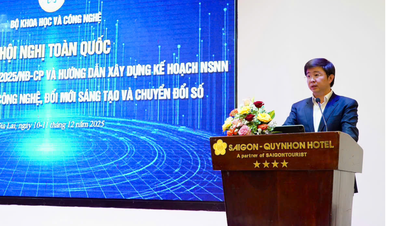
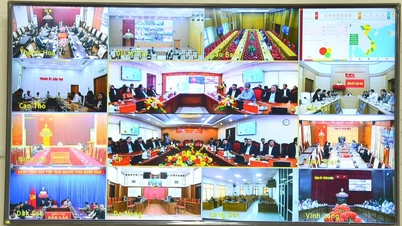
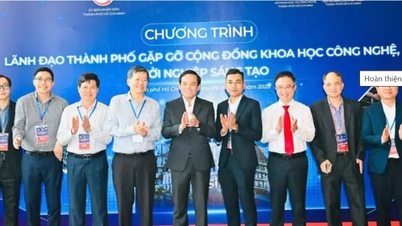










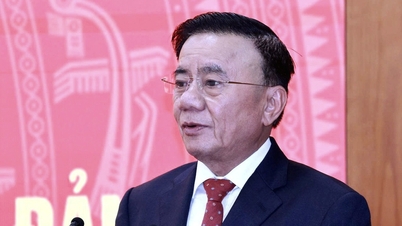





![[Video] The craft of making Dong Ho folk paintings has been inscribed by UNESCO on the List of Crafts in Need of Urgent Safeguarding.](https://vphoto.vietnam.vn/thumb/402x226/vietnam/resource/IMAGE/2025/12/10/1765350246533_tranh-dong-ho-734-jpg.webp)


































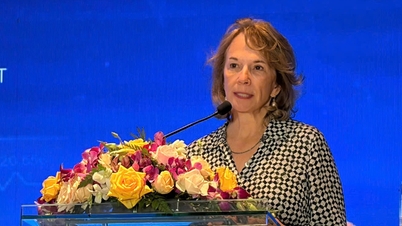


































Comment (0)